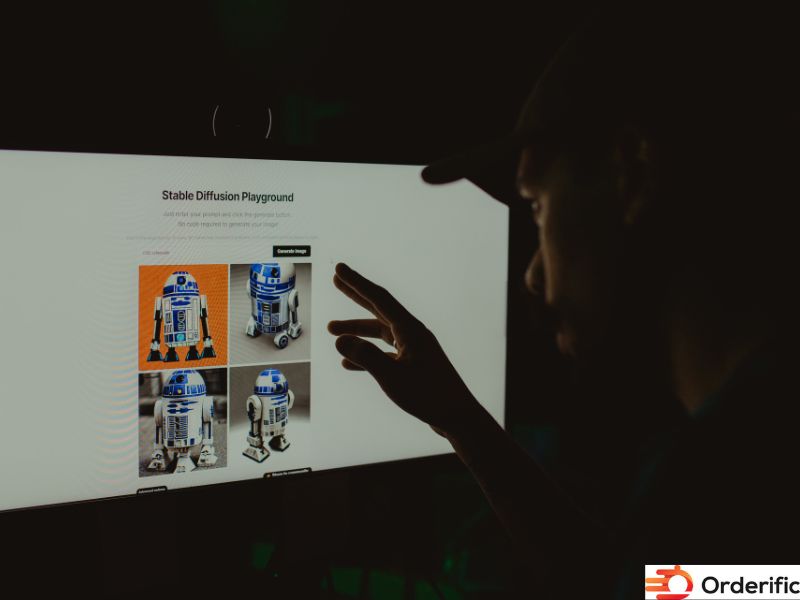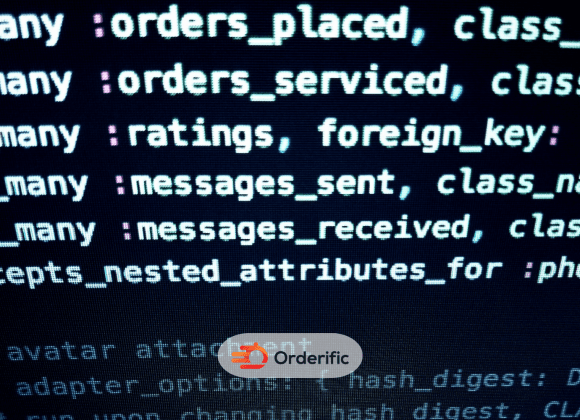Introduction
Artificial intelligence (AI) is revolutionizing the event planning industry, offering event planners innovative tools to craft immersive, personalized experiences. Leveraging AI and machine learning, event organizers can gain valuable insights into attendee preferences, enabling them to tailor the event experience to each individual. Generative AI algorithms create dynamic content, enhancing attendee engagement and improving customer experience. AI technology can also streamline event management, with AI chatbots providing excellent customer service and predictive analytics, empowering planners with a comprehensive understanding of their attendees. Whether for a virtual event or an in-person gathering, AI provides the tools to transform the attendee experience, ushering in a new era of event planning.
Leveraging AI In Event Planning: A Comprehensive Guide To Enhancing Efficiency And Creativity

1. The Dawn Of AI In Event Planning
AI is making waves in the realm of event planning. Event organizers are harnessing the power of artificial intelligence to gain valuable insights into attendee preferences and optimize the attendee experience. This is achieved through machine learning algorithms that analyze behavioral data to tailor the event experience to individual attendees. Generative AI algorithms, in particular, serve as a game-changer, creating dynamic, personalized content that boosts attendee engagement.
Event planners are leveraging AI technology not just for in-person gatherings but also for virtual events. AI tools such as AI chatbots augment customer service, providing instant, efficient responses and enhancing the overall customer experience. The predictive analytics capabilities of AI offer a wealth of benefits to event planners. This AI advantage allows for meticulous event management by forecasting trends and identifying potential challenges before they arise.
The rise of responsible AI also brings about an exciting shift in the event planning industry. AI algorithms that respect user privacy while delivering personalized experiences make the process more secure and trustworthy for attendees. With AI technology at their fingertips, event planners can revolutionize the event planning process, creating immersive experiences that attendees will remember. Thus, AI is not just a tool for event planners but a catalyst for innovation, reinventing the event experience in an exciting and meaningful way for all involved.
2. Chatbots: Your New Event Planning Assistant
Event planners are increasingly deploying AI chatbots to streamline customer service, reflecting an innovative trend in event management. These AI tools transform the attendee experience, providing instantaneous responses to queries and delivering valuable insights into attendee preferences. Integrating AI technology, particularly generative AI, into event planning processes allows for creating dynamic, AI-generated content, thus elevating attendee engagement.
Artificial intelligence and machine learning offer a significant edge, empowering event organizers with predictive analytics capabilities. These enable a keen understanding of attendee behavior, facilitating tailoring unique, immersive event experiences.
Virtual events, too, are benefiting from AI’s rise. Attendees at such events enjoy a personalized, engaging experience courtesy of responsible AI algorithms that uphold user privacy while customizing content.
Event organizers leveraging AI can revolutionize planning, making events more efficient, interactive, and memorable. For event marketers, AI offers many opportunities to enhance customer experience, from implementing AI chatbots for responsive customer service to using predictive analytics for trend forecasting.
In conclusion, AI in event management is not just a tool but a game-changer, altering the landscape of event planning and setting new standards for the attendee experience. The rise of responsible AI, prioritizing user privacy while delivering personalized services, heralds a new era where technology and creativity fuse to redefine event experiences.
3. Personalization With AI
The power of personalization in event planning is significantly amplified by the advent of AI. Artificial intelligence allows for a granular understanding of attendee preferences and behavior, empowering event planners to craft personalized experiences that resonate with each individual. This is made possible through machine learning algorithms that analyze vast amounts of behavioral data to derive key insights. Generative AI takes this personalization a step further by creating dynamic, tailored content that enhances attendee engagement and satisfaction.
AI chatbots serve as virtual assistants, providing immediate, personalized responses to attendee queries. They revolutionize customer service by delivering instantaneous, efficient responses that greatly enhance the attendee experience. Not only this, but generative AI also provides dynamic content tailored to each attendee, elevating engagement levels and overall satisfaction.
AI’s predictive analytics capabilities give event organizers a clear understanding of attendee behavior and trends, enabling them to plan and execute events that truly resonate with their audience. Moreover, the rise of responsible AI ensures user privacy is respected while delivering these personalized experiences.
The use of AI in event planning is truly transformative, turning events into immersive, tailored experiences that attendees won’t soon forget. The integration of AI technology into event planning processes is not just an innovative trend, but a catalyst for reinventing the event experience.
4. AI-Powered Event Marketing
AI is playing a significant role in redefining event marketing strategies. By leveraging machine learning, event planners can analyze vast amounts of demographic and behavioral data to design highly targeted marketing campaigns. AI tools assist in segmenting the audience, enabling the delivery of personalized messages that resonate deeply with potential attendees. Furthermore, generative AI can create compelling, tailored content for promotional material, increasing engagement and conversion rates. AI-driven predictive analytics also allow event planners to anticipate market trends and adjust their strategies accordingly, ensuring optimal results. Moreover, the advent of responsible AI has made the process more secure, guaranteeing user privacy while delivering a personalized marketing experience. In conclusion, AI is not just enhancing event marketing, but revolutionizing it, setting new standards for audience engagement and campaign success.
5. AI In Venue Selection
AI is dramatically transforming the process of venue selection for event planners. Utilizing machine learning algorithms, AI-powered tools can sift through numerous venue options, analyzing various parameters like location, capacity, logistics needs, and cost, to suggest the most suitable venues for an event. They also incorporate attendee demographics and preferences into the decision-making process, ensuring a venue that aligns with the target audience’s expectations. Furthermore, generative AI can create virtual walkthroughs of proposed venues, allowing planners to visualize and experience the space without physically being present. Predictive analytics can forecast potential logistical challenges, facilitating proactive problem-solving. Additionally, the use of responsible AI ensures this process respects user privacy while offering a personalized, efficient venue selection experience. In essence, AI is reinventing venue selection, making it a more streamlined and data-driven process.
6. Predictive Analytics For Successful Events
Predictive analytics, powered by AI, is becoming a vital tool for successful event planning. By analyzing historical data and identifying patterns, AI can predict future outcomes and trends, equipping event planners with powerful insights to make informed decisions. Whether forecasting attendee behavior, anticipating logistical challenges, or gauging market trends for more effective marketing strategies, AI’s predictive analytics capabilities are invaluable. Moreover, the advent of responsible AI ensures that these capabilities are leveraged while respecting user privacy. Therefore, AI’s predictive analytics not only supports the creation of tailored, engaging events but also fosters a reliable and secure planning environment.
7. AI For Event Security
AI is fast becoming an instrumental pillar in enhancing event security. With the aid of machine learning algorithms, AI systems can effectively manage crowd control, monitor behavior to prevent instances of misconduct, and streamline access control, thereby ensuring a safer event environment. AI-powered facial recognition technology can simplify the check-in process, reduce wait times, and enhance security by accurately identifying attendees. Furthermore, predictive analytics can anticipate potential security threats, enabling pre-emptive measures. Importantly, the notion of responsible AI extends to this realm too, ensuring these security measures respect attendee privacy. In essence, AI is shaping the future of event security, making events safer, smoother, and more enjoyable for all attendees.
8. The Ethical Considerations Of Using AI
While AI is revolutionizing event planning and management, it’s crucial to consider the ethical implications of its use. Responsible, ethical AI must respect user privacy, ensuring that the data collected for personalization and predictive analytics is used appropriately and secured against misuse. AI systems must also be transparent, allowing users to understand how their data is used and offering them control over their information. Additionally, it’s necessary to ensure that AI does not inadvertently reinforce biases or exclusions through its algorithms. Event planners must consider these ethical dimensions when leveraging AI, ensuring that technology enhances the attendee experience without compromising their rights or privacy. In essence, responsible AI use is about striking a balance between innovation and ethics, ensuring a future where AI-enabled events are not just immersive and efficient, but also respectful and safe.
9. The Future Of AI In Event Planning
AI’s role in event planning is set to expand in the future, becoming more integrated and instrumental in creating memorable, personalized experiences. It will continue to redefine how events are marketed, venues are selected, and security is managed. Already, we see machine learning and predictive analytics aiding in tailoring events to individual preferences and forecasting trends. As generative AI evolves, it will create even more dynamic content, enhancing attendee engagement. Responsible AI will ensure user data protection, building trust between event organizers and attendees. In the future, AI will not only be a tool but a partner in event planning, transforming the industry with unprecedented efficiency, personalization, and innovation.
10. Embracing AI In Your Event Planning
Incorporating AI into event planning processes can yield significant benefits. AI technology, such as machine learning and generative AI, provides invaluable insights into attendee preferences, allowing for personalized experiences. AI chatbots enhance customer service with immediate, tailored responses. AI-driven predictive analytics support decision making by forecasting attendee behavior and market trends. When used responsibly, AI upholds user privacy while delivering these personalized experiences. AI’s transformative power redefines not only event planning but also marketing strategies, venue selection, event security, and ethical considerations. In the future, AI is poised to become an indispensable partner in event management, driving efficiency, personalization, and innovation to new heights. It’s time for event planners to embrace AI and leverage its potential to create memorable, immersive events.
Conclusion
In the evolving landscape of event planning and management, AI emerges as a powerful ally, offering precise predictive analytics, personalized event experiences, streamlined event marketing, efficient venue selection, enhanced security, and an ethical approach to data use. From AI chatbots to generative AI, the technology is not only transforming events but also redefining attendee engagement. As we look to the future, AI’s role in event planning is poised to expand, becoming more integrated and instrumental in creating memorable events tailored to individual preferences. By using responsible AI, we can uphold user privacy while delivering an enhanced, personalized experience. It’s clear that AI’s transformative power is redefining event planning, driving efficiency, personalization, and innovation to new heights. As an event planner, it’s time to embrace AI and leverage its potential to create memorable, immersive events.
To explore how AI can revolutionize your event planning process, book a demo with Orderific and discover the future of event management. Discover how Orderific can leverage your event management business today.
FAQs
How does artificial intelligence enhance the customization of event experiences for attendees?
Artificial Intelligence analyzes attendee preferences and behavior to tailor event content, enhancing engagement and satisfaction.
What specific AI applications contribute to optimizing event planning and execution?
Artificial Intelligence applications such as predictive analytics, AI chatbots, and generative AI are key in optimizing event planning and execution.
Can event organizers with varying budgets leverage AI for tailored experiences, and how?
Yes, Artificial Intelligence solutions are available at various price points, making them accessible to event organizers with different budgets.
Are there privacy considerations associated with the use of AI in event customization?
Yes, responsible AI usage ensures user data privacy while offering personalized event experiences.
How can AI adapt to changing attendee preferences and feedback for continuous improvement in events?
AI can adapt by continuously learning from attendee behavior and feedback, allowing for real-time improvement in events.













